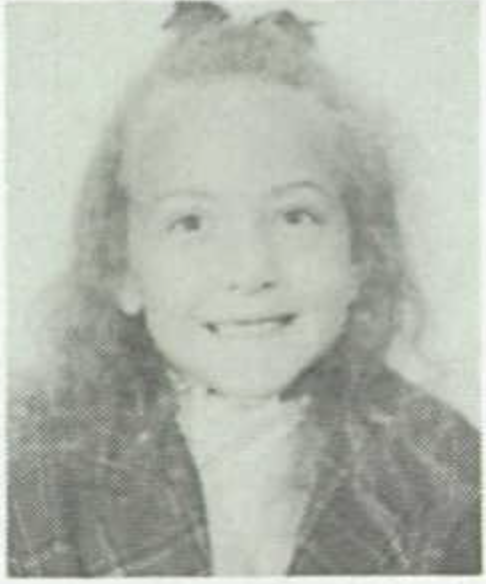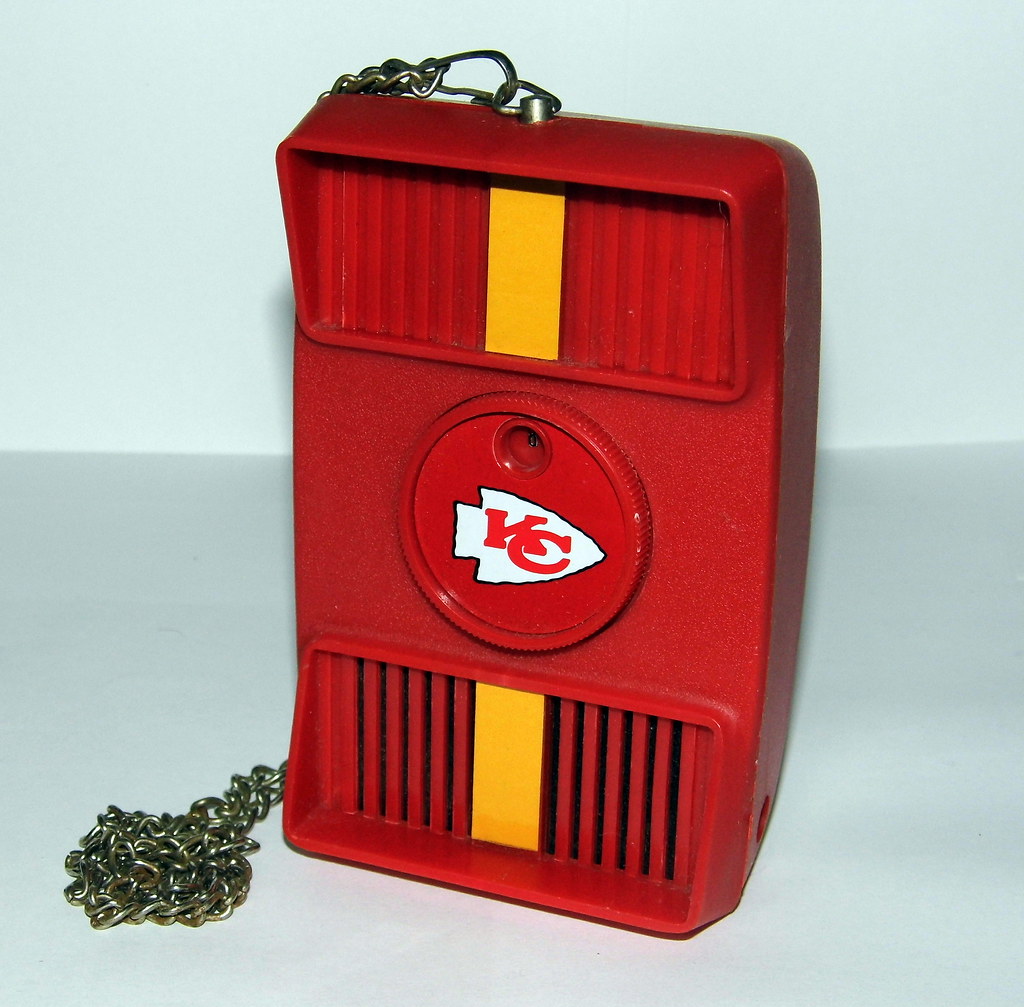Success, Measured Many Ways
As a “college preparatory” school, what are the ways in which our campus defines and celebrates success for all students?
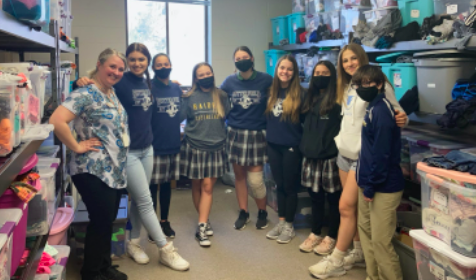
Butterfield House on a service trip to an Omaha area nonprofit.
Spring is a busy time on the Brownell Talbot campus. With seniors looking at the next steps after high school, juniors in the midst of college applications, sophomores exploring possible career paths, and freshmen planning out their future classes, it seems as if the whole Upper School is fixated on college and careers. All of these activities focus on academic measures of success, but are academics the only thing that counts when thinking about student success at BT?
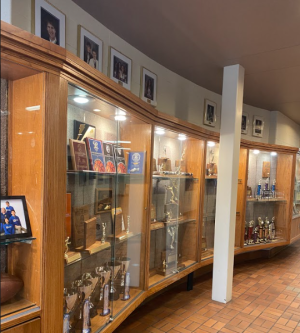
All high school students strive for success, whether that means getting good grades, getting into a top college, or even something as simple as helping out in the community. With a diverse population of students, each one with their own personal goals, the meaning of success at BT can be measured many different ways. It is easy for competition to arise when it comes to quantitative measures of success, like grades and standardized test scores. But these more traditional measurements don’t always indicate future success, especially when measured in less traditional ways. Maintaining mental and physical health is crucial, as well as being a good person with strong leadership skills. That’s one reason why the school recently released its Portrait of a BT Graduate, which accounts for attributes that will lead to success in college and careers, but that also acknowledges intangible measures of success, like Stewardship, Identity and Creativity. These are qualities that can be celebrated in any number of ways, and that are exemplified every day on BT’s campus.
However, some BT students still cannot help but feel unrecognized or underrepresented in the types of success that are celebrated on campus and in our outward promotions of the school, most of which focus on seniors being admitted to highly competitive schools. This is a major concern for BT’s Director of College Counseling and Guidance, Mrs. Vander Vorst, who emphasized how her job—despite its title—isn’t focused solely on ensuring all students are admitted to a top school, but rather on finding the perfect fit for each student. As a counselor, she notices how the environment can become competitive, and how it’s necessary for all students to be more encouraging towards one another, regardless of the numbers.
Another part of her job is to make sure that students are physically, mentally, and emotionally well. To empower students to take ownership of these aspects of daily student life on campus, she and Mrs. Beaner have been working with the Upper School class officers to compile a Student Charter. The charter contains five words words: motivated, engaged, respected, supported, and safe. These are words that all students in the Upper School have been discussing in their weekly class meetings, and recently a vote was taken to adopt this wording in the Student Charter. These words are yet another way that the school community measures success differently, especially by placing emphasis on successful relationships among students across campus.
The strong bonds formed on campus has long been a measure of success for BT alumni, which was certainly the case for recent graduate and former Verbatim Aishani Srikumar, 21. Aishani gave her perspective on how her time at BT helped prepare her for where she is today, and for success in the future. The BT community has shown her how welcoming her classmates are and how helpful her classes and activities were for the college application process because they sharpened her writing and interviewing skills. She also spoke about how BT does a great job at challenging a student academically, while also maintaining a strong support system. After graduating, she decided to do something that may be out of the norm: taking a gap year before entering college. Taking a year off has helped her decide what she wanted to major in. In high school, she was thinking about computer science but wasn’t sure.
Though she was accepted to Columbia University as during her senior year at BT, taking the time off to gain perspective and take stock of her past successes, has ultimately paid off by making her even more eager to pursue an academically challenging curriculum at Columbia this fall, while also keeping the focus on her own sense of personal well being.
While on campus, one arena in which Aishani experienced great success was with the Robotics team, coached by Mrs. Rise. In addition to teaching Upper School math classes and leading one of the school’s most popular and successful activities, Mrs. Rise is also the parent of former BT students who have gone on to experience unique successes of their own. Mrs. Rise has had two sons graduate from BT: Connor, and Reed. Both of them took very different paths to achieve success. Mrs. Rise explained that from the beginning she noticed Connor and Reed had a different drive in school—one was more academically focused and the other was more content with going with the flow. She admitted that Connor’s approach to school didn’t thrill her at first, but during her son’s senior year, “I saw how stressed his classmates were at the time and he wasn’t, but it was because he saw students overdoing themselves in academics and he chose to go at his own pace with more ease.’’ Although Connor and Reed had different approaches to their goals, in the end, they both still achieved them. Reed attended UNO, enrolled in the Peter Kiewit Institute of Engineering, and graduated as a computer engineer. Through the Kiewit Institute, he got recognized by well-known companies and became a systems analyst. And while Connor started off wanting to be an officer through a military ROTC scholarship, he ultimately changed course and decided to go to Metro Community College for his degree in welding, which he is now pursuing.
Students, faculty, alumni, and parents all have their own ways of thinking about success at BT and after, but the one person who might put the most thought into this topic is Dr. Gibbs, BT’s Head of School. Day in and day out she spends time in conversation with those individuals and groups striving for success and thinking about ways that those successes can be amplified and celebrated. She stated that more than anything else she wants students and families to recognize that the school’s first measure of success is when a former student returns to campus and “they’re happy, they’re doing something they love, they’re feeling that they’re making an impact, they’ve taken the skills that they’ve learned here at Brownell Talbot and they’ve applied it to wherever they are.”
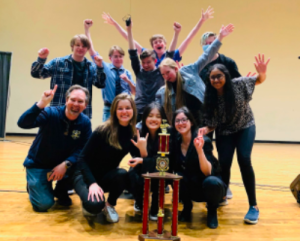
Dr. Gibbs recognizes that there are times when the tendency is to make academic achievement the most notable form of success that the school celebrates, but sincere effort goes into ensuring that successes occurring all over campus—from the production of the spring play to the recent performance of Pirate Radio to hall of the hard work going into the upcoming Cultural Fair—are given their due recognition.
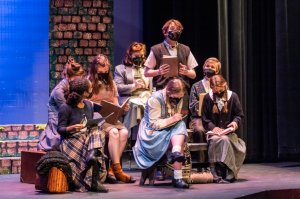
When asked what it means for all students at BT—from the three-year olds in the Early Years program through Lower and Middle School and all the way to graduating seniors in Upper School—to be enrolled in a “college preparatory school,” Dr. Gibbs reflected: “to be a college preparatory school means that we have courses and programs in place to ensure students are prepared to go to the next level,” and that it’s important for students and families encompassing the entire 15-year span represented on campus to feel that while preparation for these traditional measures of success begin the moment that a student arrives on campus, “it’s not just what you know, what you’ve learned, but it’s really how to think critically, how to communicate, how to collaborate… I think that’s a part of that college preparatory experience as well.” There’s no doubt that there are myriad endeavors taking place on campus at any given moment that constitute a success for one individual, or a small group, or a team, or an entire class. Finding ways to measure and celebrate those successes is an ongoing concern for many different people at BT, all of whom hope that no success, no matter how big or small, goes unrecognized.












